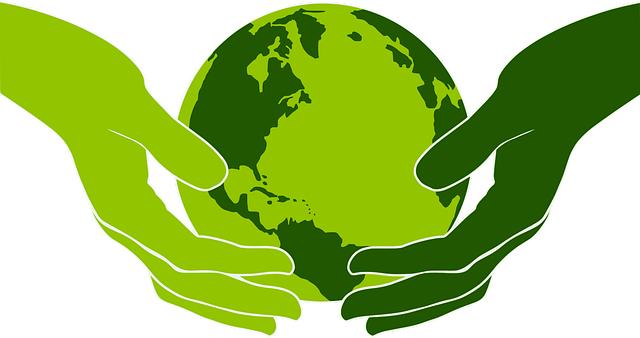In a world where the echoes of social inequality reverberate through communities, the quest for empowerment becomes not only a personal journey but a collective mission. In Pakistan, a nation characterized by rich cultural diversity and shared histories, the stark realities of inequality manifest in various forms—from gender disparities to economic divides. Yet, amidst these challenges, a chorus of voices rises, determined to confront and dismantle the systemic barriers that perpetuate injustice. This article delves into the heart of these empowering narratives, exploring grassroots initiatives and visionary movements that aim to uplift marginalized communities. By highlighting the stories of individuals and organizations driving change, we aim to illuminate the path towards a more equitable society, one where every voice is heard, valued, and empowered. Join us as we unravel the complexities of social inequality in Pakistan and celebrate the resilience of those who dare to challenge the status quo.
Empowering the Marginalized: Understanding Social Structures and Inequality in Pakistan
In Pakistan, the landscape of social structures is layered and complex, shaped by historical, cultural, and economic forces that create a persistent cycle of inequality. Marginalized communities such as women, ethnic minorities, and the economically disadvantaged often face barriers that hinder their ability to participate fully in society. Addressing these issues requires a multifaceted approach, focusing on education, economic empowerment, and policy reform. By investing in grassroots movements and educational programs, we can nurture an environment where the marginalized can reclaim their agency and voice.
A proactive strategy to dismantle social inequality involves recognizing the systemic challenges that perpetuate it. Key factors contributing to the marginalization include:
- Gender Disparities: Women often lack equal access to education and economic opportunities.
- Ethnic Discrimination: Minorities face social ostracization and limited representation in governance.
- Poverty Cycle: Economic disenfranchisement creates barriers to education and health services.
Understanding these issues is crucial in fostering an inclusive society that values diversity and empowers every individual to thrive. Through community engagement and collaborative initiatives, we can create solutions that not only recognize these disparities but actively work to dismantle them.

Voices of Change: Grassroots Movements and Their Role in Promoting Social Justice
The power of grassroots movements in Pakistan has emerged as a beacon of hope amid the shadows of social inequality. Local communities, driven by passion and solidarity, have rallied to challenge the status quo, advocating for the rights of marginalized groups. These movements harness the unique voices within their neighborhoods, fostering a sense of ownership and agency. Some key characteristics of these grassroots initiatives include:
- Community-Oriented: Focused on local needs and priorities.
- Inclusive: Engaging diverse groups, from women to the youth.
- Collaborative: Partnerships with non-profits and civil society organizations.
These efforts are not merely reactive; they are transformative. When individuals unite, they create a formidable force that draws attention to issues like education disparities, gender-based violence, and economic injustices. Grassroots leaders serve as vital changemakers, utilizing social media and local networks to amplify their message. A representative case is highlighted below, showcasing the impact of one such movement:
| Movement Name | Focus Area | Year Established | Achievements |
|---|---|---|---|
| Women’s Rights Coalition | Gender Equality | 2015 | Advocated for legal reforms, increased awareness on gender issues. |
| Education for All | Access to Education | 2018 | Established schools in remote areas, provided scholarships. |

Bridging the Divide: Education and Economic Opportunities for Underserved Communities
The gap between education and economic opportunities for underserved communities in Pakistan is not just a chasm; it’s a complex landscape shaped by multiple factors including geography, socio-economic status, and systemic neglect. Investing in education is paramount, as it serves as a powerful catalyst for sustainable growth. By introducing innovative educational programs that are tailored to the needs of these communities, we can ignite a transformation that empowers individuals and uplifts entire groups. Initiatives such as vocational training and mentorship programs can bridge this gap, equipping participants with the necessary skills to compete in the job market and encouraging entrepreneurial ventures that stimulate local economies.
Moreover, it is crucial that partnerships between governments, NGOs, and the private sector are forged to create a comprehensive support system. The implementation of scholarship programs, accessible learning materials, and digital literacy initiatives can pave the way for a brighter future. With targeted efforts, we can create a structure where education not only mitigates existing inequalities but also promotes social mobility. Below is a simplified overview of potential strategies:
| Strategy | Description |
|---|---|
| Vocational Training | Equip youth with job-ready skills. |
| Scholarship Programs | Financial assistance for higher education. |
| Digital Literacy Training | Teach essential tech skills for modern jobs. |
| Entrepreneurship Support | Guidance and resources for small business owners. |

Policy Pathways: Recommendations for Sustainable Change in Tackling Inequality
To address social inequality in Pakistan effectively, a multifaceted approach is essential. Prioritizing education must be at the forefront, ensuring equitable access for all, particularly marginalized communities. Initiatives like community-based learning programs can significantly bridge the educational divide. Additionally, strengthening local governments to tailor policies that reflect the unique needs of diverse populations can enhance trust and engagement. Collaboration between government, NGOs, and private sectors is vital to mobilize resources and expertise, creating inclusive platforms for dialogue and action.
Furthermore, economic empowerment strategies should focus on creating opportunities for underrepresented groups. This includes:
- Establishing small business grants for women and minorities
- Implementing vocational training programs in rural areas
- Advocating for fair wages and labor rights in informal sectors
By fostering an environment that champions social entrepreneurship, we can stimulate local economies and uplift communities. A pivotal component of this change is the enhancement of social safety nets, ensuring that vulnerable populations can weather economic transitions while paving pathways to sustainable livelihoods.
In Summary
As we conclude our exploration of “Empowering Voices: Tackling Social Inequality in Pakistan,” it becomes clear that the journey toward equality is multifaceted and complex. It is a narrative woven with threads of resilience, innovation, and the unwavering spirit of individuals and communities dedicated to change. Each voice we’ve encountered represents not just a story of struggle, but also a beacon of hope and possibility.
Addressing social inequality requires not only an understanding of systemic barriers but also a commitment to amplifying the narratives of those often unheard. It involves fostering dialogues, embracing education, and cultivating empathy. The path forward is neither simple nor swift, but every effort, whether through grassroots movements or legislative change, contributes to a tapestry of progress.
As we move ahead, let us remember that empowering voices is not merely about raising awareness; it’s about instilling a sense of agency and encouraging collective action. The fight against social inequality in Pakistan—and indeed, in every corner of the globe—relies on our ability to listen, learn, and uplift one another. In our shared humanity lies the potential for a more equitable future, one where every voice resonates loudly, breaking the silence of injustice and echoing the promise of change.



